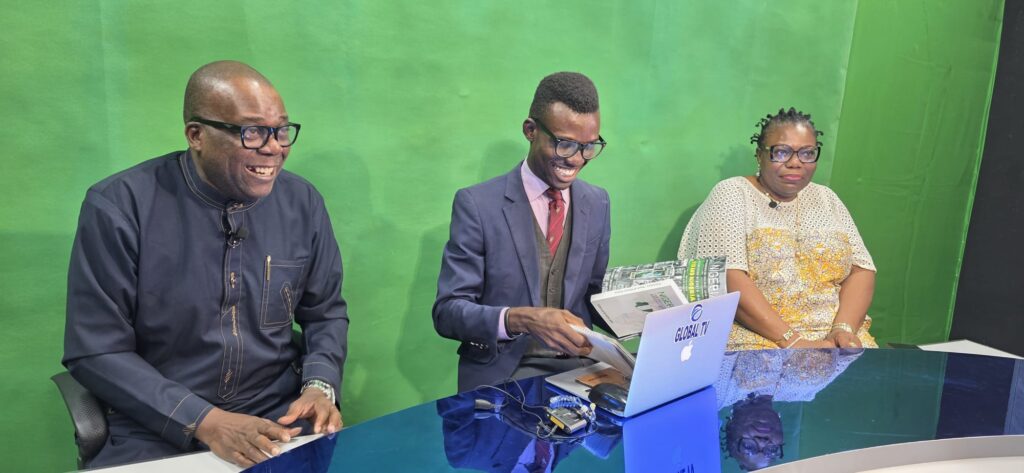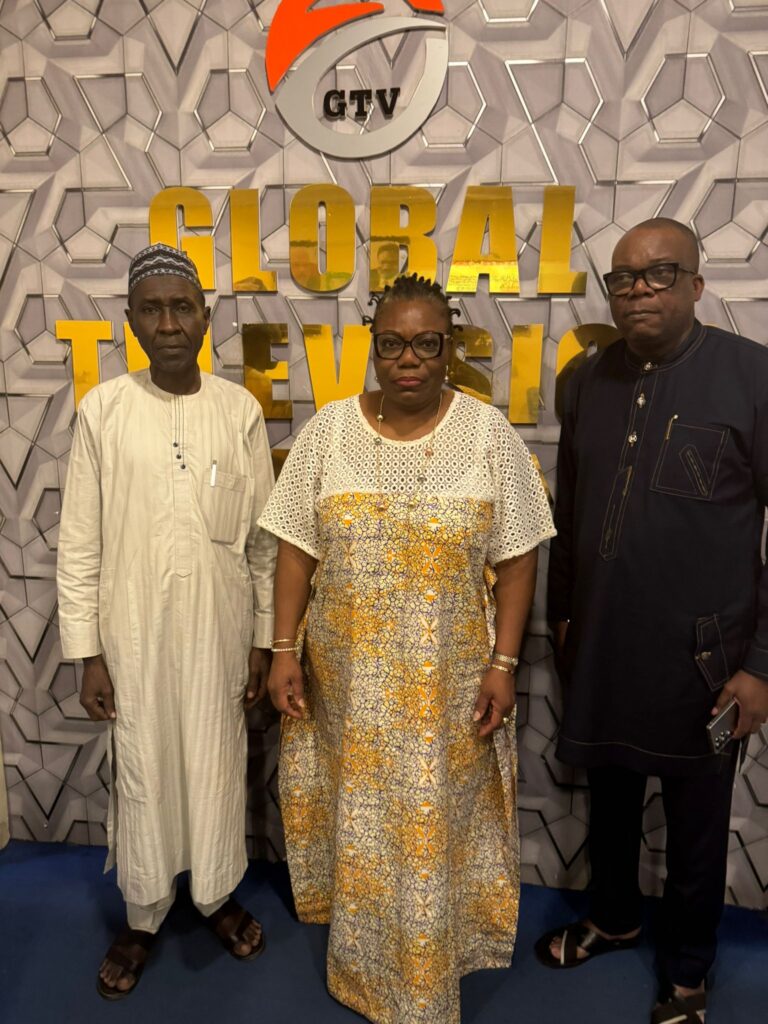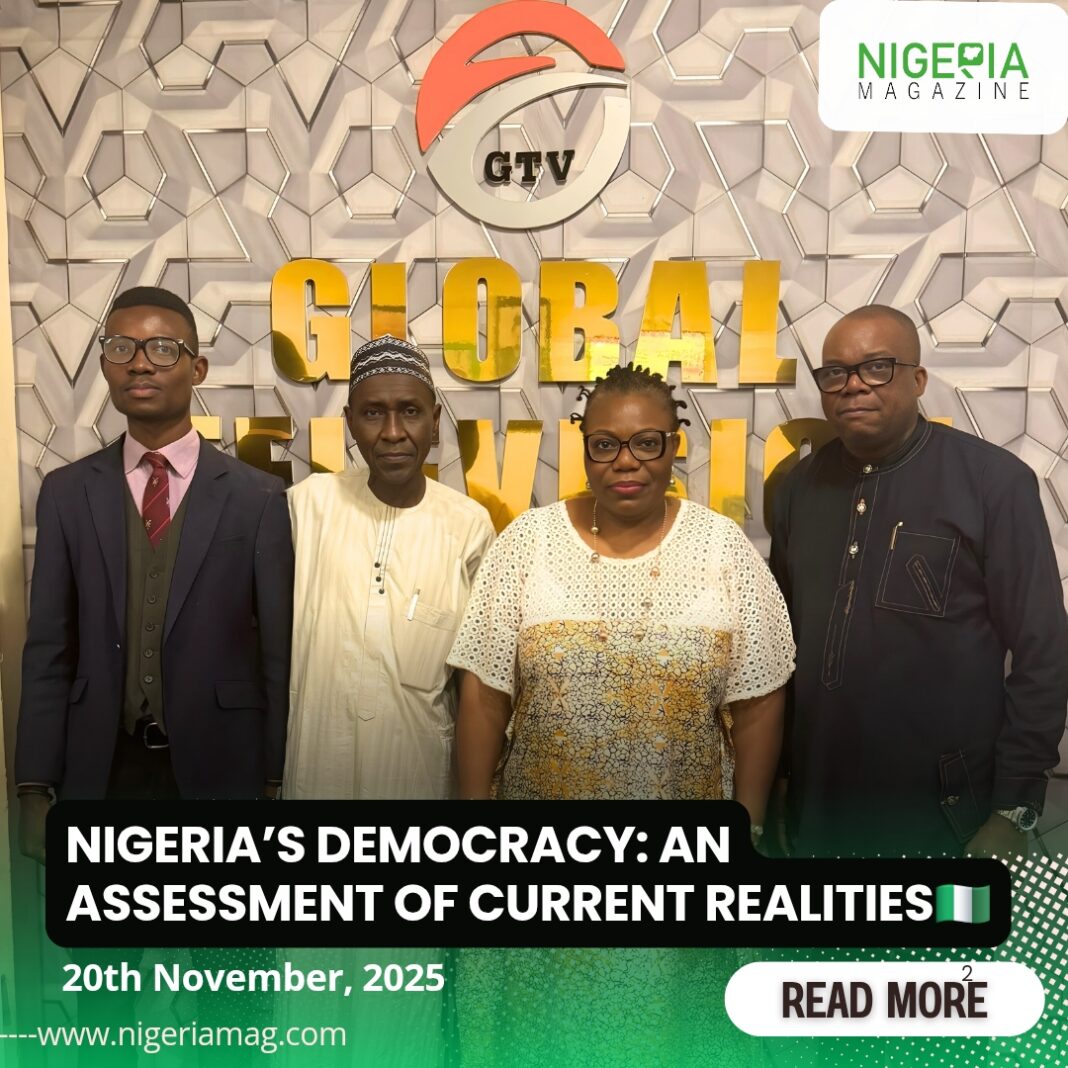The Chairman of Nigerian Magazine, Kede Aihie, and the Editor, Esosa Aihie, have expressed deep concern over the state of Nigeria’s democracy, calling for renewed public engagement, political accountability, and a re-evaluation of the country’s democratic values.
Speaking as guests on the political affairs programme Big Talk on Global Television, the duo examined Nigeria’s 26 years of uninterrupted civilian rule and the recurring political tensions that continue to undermine democratic growth. Their remarks came on the heels of a dramatic standoff at the Peoples Democratic Party (PDP) national headquarters in Abuja, where two rival factions attempted to take control of the secretariat, resulting in security clashes and public disruption.
A Show of Shame, Says Chairman
Kede Aihie described the events at Wadata Plaza as “a show of shame,” noting that such internal party conflicts reflect deeper systemic issues.
According to him, Nigeria’s political actors, not the democratic system itself, remain the biggest threat to progress. He explained that from the 1950s to the First Republic, through military rule, and now to the Fourth Republic, the country has repeatedly struggled with factionalism, ethnic politics, and transactional leadership.

“We’ve tried every system, parliamentary, military, presidential. The problem is not the structure; it is the mindset of the political actors,” he said.
“When less than 30 percent of citizens participate in elections, it shows a crisis of confidence. People simply do not trust the system.”
Kede Aihie added that the frequent cross-carpeting of politicians and the absence of ideological consistency erodes public trust and weakens institutions.
Democracy Without the People — Esosa Aihie
Editor of Nigerian Magazine, Esosa Aihie, emphasised that a democracy devoid of mass participation cannot deliver meaningful governance.
She lamented that despite 26 years of democratic practice, Nigerian politics remains heavily driven by money, influence, and elite interests.

“The question we must ask is: do we really understand what democracy is? Today we saw a few individuals acting as though the party belongs to them,” she said.
“Where are the people in all of this? Their voices were ignored. Their safety was threatened. Their rights were sidelined.”
She noted that voter apathy, evident in the low turnout during several recent state elections, is a direct reflection of citizens’ eroding trust in political outcomes.
Esosa Aihie called for greater inclusion of youths, women, and other underrepresented groups and urged Nigerians to use their numerical strength to reset the political culture.
The Money Question
Both speakers agreed that Nigeria’s politics has become excessively monetised, shutting out competent individuals who lack financial backing.
Esosa stressed that while political campaigns cost money globally, Nigeria’s model has become “a class capture,” where only those with enormous wealth or powerful sponsors can aspire to leadership.
“Democracy should not be reserved for the highest bidder,” she added.
A Call for National Reflection
The conversation concluded with a call for Nigerians to collectively demand better from political actors, reinforce democratic institutions, and guard against the growing culture of impunity.
Kede Aihie noted:
“We cannot keep pretending. We must make the system work. Democracy must reflect the will of the people, not the ambitions of powerful individuals.”
Ubong Usoro for Nigeria Magazine


